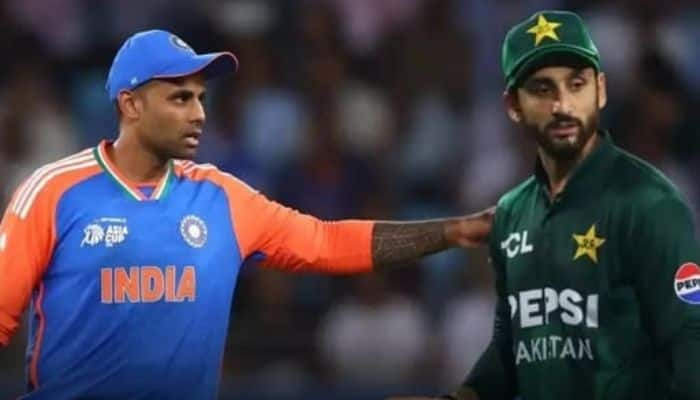Cricket And Terror Are Different: Pahalgam Victim’s Family Supports India-Pak Asia Cup 2025 Match
The Asia Cup 2025 T20 clash between India and Pakistan in Dubai has sparked strong reactions, just months after the tragic Pahalgam terror attack that claimed 26 lives, including Niraj Udhwani from Jaipur. While some families of the victims defend the spirit of cricket, others see the match as an insensitive reminder of recent bloodshed.
Families Defend India-Pakistan Match Amid Terror Fallout
Niraj Udhwani, a finance professional who worked in Dubai, had traveled to Kashmir with his wife Aayushi after attending a wedding in Shimla earlier this year. The couple was vacationing in Pahalgam on April 22 when terrorists opened fire on tourists, killing 26 people. The attack escalated tensions along the India-Pakistan border, leading to days of cross-border hostility and civilian casualties.
Despite the tragedy, Niraj’s family has voiced support for India participating in the Asia Cup match against Pakistan. Bhagwan Das Udhwani, Niraj’s uncle, emphasized the importance of separating sports from political violence, stating, “It’s the spirit of the game. This is a different thing, and one should not equate it with the Pahalgam attack.”
Another uncle, Prakash Udhwani, echoed the sentiment, highlighting that the Asia Cup is a multinational tournament involving several countries. “If India doesn’t play, its name will be tarnished, and it could be excluded from the tournament. Pakistan is part of Asia just like other countries. Boycotts are gimmicks; the match was the right thing to do,” he said.
India emerged victorious with a 7-wicket win, a result that Prakash and other family members viewed as separate from the tragic events of April.
Opposition from Victims’ Families Sparks Debate
However, not all voices were in favor of the match. Asawari Jagdale, daughter of Santosh Jagdale, who was killed in the Pahalgam attack along with family friend Kaustubh Gunbote, expressed strong disapproval. Speaking from Baisaran Valley, Asawari criticized the decision to play against Pakistan, calling it “shameful” given the recent terror strike and ongoing sacrifices of Indian soldiers.
She argued that true respect for victims involves not entertaining or engaging with countries sponsoring terror. “Allowing the match amounts to playing with the emotions of the victims’ families. It’s shameful for those organizing, playing, and cheering while forgetting the Pahalgam victims,” Asawari said.
Her statements highlight the complex emotional and political layers surrounding India-Pakistan sports encounters, particularly in the wake of cross-border terrorism.
Asia Cup 2025: Cricket Beyond Borders
The Asia Cup 2025 has always been more than a sporting event. Featuring top Asian teams, including India, Pakistan, Sri Lanka, and Bangladesh, the tournament serves as a platform for cricket diplomacy and regional pride. The India-Pakistan rivalry, however, remains one of the most charged fixtures in world cricket, often drawing immense viewership and media attention.
BJP MP and former sports minister Anurag Thakur reinforced the tournament’s international context, explaining that India’s participation was necessary because the match was part of a multinational ICC event, separate from bilateral tensions.
Navigating National Sentiment and Sporting Spirit
The clash between sporting commitments and national sentiment underscores a broader debate in Indian society. While cricket enthusiasts celebrate India’s win and the excitement of the Asia Cup, families of terror victims remind the nation of the lingering grief and unresolved trauma caused by cross-border violence.
Experts argue that such debates are natural in countries with politically sensitive rivalries. The challenge for organizers, players, and policymakers is to balance international sporting obligations with empathy for victims of terrorism, ensuring that sports do not overshadow human tragedies.




